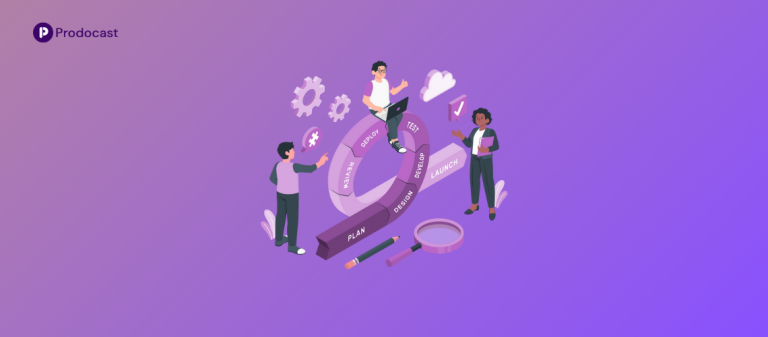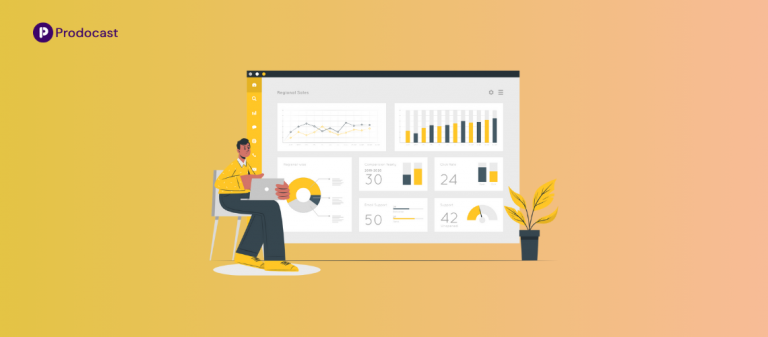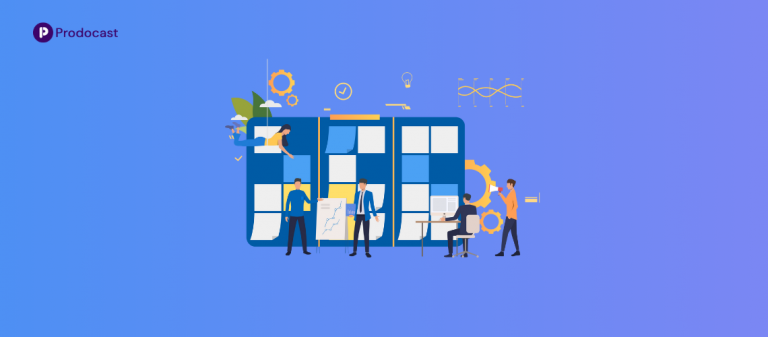The rapid advancements of technology is altering our way of living and working. In this situation, artificial intelligence (AI) has become a game-changer. AI has the ability to transform entire industries and the way we operate. The future of work and AI will be discussed in this blog, along with how the powerful technology will alter the way we work.
So What is AI?
AI refers to the ability of machines to perform tasks that would normally require human intelligence. These tasks can include recognizing speech, interpreting images, and making decisions based on data. AI is becoming increasingly sophisticated, with deep learning algorithms enabling machines to learn and improve their performance over time.
Significance of AI in Work
The ability of AI to automate many activities presently carried out by humans is one of its main advantages. This covers everything, from simple decision-making to the input of data. AI can free up human employees to concentrate on more complex tasks that call for creativity, critical thinking, and emotional intelligence by automating these routine tasks.
Another way in which AI is changing the future of work is through its ability to augment human capabilities. For example, AI can help humans analyze vast amounts of data quickly and accurately, enabling them to make better decisions. AI can also provide real-time feedback and coaching to workers, helping them to improve their performance and become more productive.
Additionally, AI is changing how work is done. More advanced machines are now able to perform tasks that were previously believed to be the sole responsibility of human employees. This covers work in sectors like healthcare, banking, and even the arts and creative professions.
This change can give employees new chances, which is one of its primary benefits. Workers can concentrate on more creative and strategic work that needs human intellect, for instance, as robots take over everyday tasks. As a result, there may be a rise in productivity, better work happiness, and eventually, economic prosperity.
Concerns About AI in Work
There are concerns about the impact of AI on the future of work. One of the biggest concerns is that AI could lead to widespread job displacement. As machines become more capable, they may be able to perform tasks that were previously performed by humans, leading to job losses in certain industries.
Another point of concern is that AI might make current workplace disparities worse. Workers who possess skills that are more readily automated, for instance, may be more at risk of losing their jobs than workers who possess skills that are more difficult to automate. Increased economic inequality and social unrest may result from this.
Despite these concerns, many experts believe that AI has the potential to create more jobs than it displaces. As machines take over routine tasks, workers can focus on more complex and challenging work, leading to the creation of new jobs and industries.
Moreover, AI has the potential to transform the way we work in ways that we cannot even imagine. For example, it could enable us to work more flexibly, from anywhere in the world. It could also enable us to work more collaboratively, with machines and humans working together in real-time to solve complex problems.
Limitations and Benefits of Work and AI
Work and AI (Artificial Intelligence) have both limitations and benefits. Let’s start with the limitations:
Limitations:
|
Work |
AI |
| Time Constraints: One of the biggest limitations of work is the time constraint. We have a limited amount of time to complete tasks, and this can create pressure and stress. | Lack of Creativity: AI systems are not creative in the way that humans are. They are programmed to follow specific rules and algorithms, and they cannot deviate from these instructions. |
| Health Risks: Work can also have a negative impact on our health, especially if we work long hours or in a physically demanding job. Repetitive strain injuries, back problems, and eye strain are just a few examples of the health risks associated with work. | Bias: AI systems can be biased, depending on the data they are trained on. If the data is biased, the AI system will also be biased, which can have negative consequences. |
| Monotony: Many jobs involve repetitive tasks, which can become monotonous and boring over time. This can lead to demotivation and reduced job satisfaction. | Lack of Emotional Intelligence: AI systems do not have emotional intelligence, and they cannot understand human emotions or empathize with people in the way that humans can. |
Benefits:
|
Work |
AI |
| Financial Stability: Work provides financial stability and allows us to support ourselves and our families. | Increased Efficiency: AI systems can perform tasks much faster and more efficiently than humans, which can save time and reduce costs. |
| Personal Growth: Work can provide opportunities for personal growth and development. We can learn new skills, take on new challenges, and gain experience in our chosen field. | Improved Accuracy: AI systems can be programmed to perform tasks with a high degree of accuracy, reducing errors and improving quality. |
| Social Interaction: Work provides opportunities for social interaction and can help us build relationships with colleagues and clients. | Innovation: AI can lead to new innovations and discoveries, particularly in fields such as medicine, engineering, and science. |
Closing Thoughts
The future of work and AI is a complex and quickly evolving subject. Even though there are worries about how AI will affect the workforce, there is also a lot of promise for this technology to change the way we work and open up new possibilities for employees. In order to build a future that benefits everyone, it will be crucial for companies, policymakers, and employees themselves to remain up to date on the most recent advancements in AI.
The nature of work and the workplace will unavoidably change as AI technology develops. While AI has the ability to automate a variety of repetitive tasks, it can also open up new possibilities for productivity, efficiency, and creativity. People will need to learn new skills and adjust to new working methods in order to accomplish this. For instance, it’s possible that in the future, skills like creativity, emotional intelligence, and problem-solving will become even more crucial.
Another important consideration is the impact of AI on jobs and employment. While some jobs may be automated by AI, new roles may also emerge that require the skills and expertise of humans. It is important for individuals, organizations, and governments to prepare for this transition and to invest in reskilling and upskilling initiatives to ensure that workers are equipped for the future of work.
The future of work and AI presents both opportunities and challenges. By embracing new technologies, developing new skills, and adapting to new ways of working, individuals and organizations can thrive in the rapidly changing workplace of the future.
Frequently Asked Questions
What is AI and how is it used in the workplace?
AI stands for Artificial Intelligence, which is a set of technologies that enable machines to perform tasks that typically require human intelligence, such as learning, problem-solving, and decision-making. In the workplace, AI can be used for a variety of tasks, including data analysis, predictive modeling, and customer service.
Will AI replace human workers in the future?
Several regular tasks could be automated by AI, which could result in some employment displacement. The need for human talent and knowledge may also result in the emergence of new positions. To make sure that workers are prepared for the future of work, it is crucial to engage in reskilling and upskilling initiatives.
What skills will be most important in the future of work?
Skills such as creativity, emotional intelligence, and problem-solving are likely to become even more important in the future of work. Individuals will also need to be adaptable and willing to learn new skills as technology continues to evolve.
How can organizations prepare for the future of work and AI?
Organizations can prepare for the future of work and AI by investing in reskilling and upskilling initiatives for their employees, adopting new technologies, and creating a culture of innovation and learning.
What role do governments play in the future of work and AI?
Governments can play a critical role in the future of work and AI by investing in education and training programs, supporting research and development initiatives, and creating policies that promote innovation and job creation. They can also help to ensure that the benefits of AI are shared fairly across society.
Discover the Future of Software Today!
Stop guessing and start choosing the right software and services for your business with Prodocast. By using our platform you can find, compare, and check out reviews of the software and services you need before making a purchase. Say goodbye to wasted time and money on the wrong solutions and say hello to success. With Prodocast, you can easily access the latest solutions, get expert advice and optimize your operations.
Start making informed decisions with Prodocast today – join Prodocast now!


